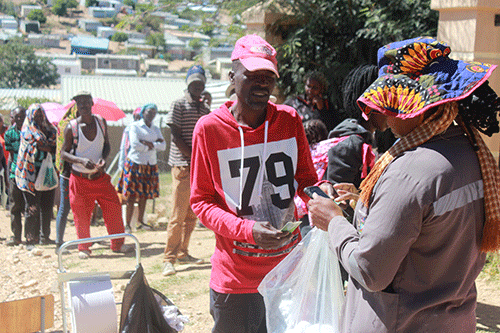National Unity Democratic Organisation member of parliament Utjiua Muinjangue has called on fellow legislators to consider introducing enforceable gender quotas to boost female representation in parliament.
At the moment, only Swapo has adopted and implemented a 50/50 gender policy for the National Assembly.
“The fate of women’s representation and participation in politics in our country can no longer be placed in the hands of political parties. Political parties have proven themselves to be a major stumbling block for the advancement of women in the political sphere,” Muinjangue said while tabling the motion on women’s representation and participation in politics last week.
Namibia has a population of 2.5 million, of which slightly more than half (51.4%) are women.
Also, last year’s Inter-Parliamentary Union (IPU) ranking of women in national parliaments ranked Namibia 15th in the world in terms of women representation in parliament. The ranking showed that women’s representation in the National Assembly stood at 43.3 %.
However, Muinjangue said going by the 50% of the population-benchmark means that the National Assembly is 6.7% in deficit of women representation.
“Our own experience has shown that enforceable legislated gender quotas as prescribed for local authorities’ elections is an asset and a means to achieve greater gender equality in the political sphere,” said Muinjangue who is also the country’s deputy health minister.
“I see no plausible reason why enforceable legislated gender quotas can similarly not be laid for all other elections in the country.”
Muinjangue said the situation in the National Council is far less impressive when it comes to women representation.
The National Council only has six women out of 42 parliamentarians, which constitutes 14.3% of women representation, thus 35.7% in shortfall of women representation in terms of the 50% of the population-benchmark.
She said studies have shown that there are some universal trends in the barriers and challenges to women’s equal participation and representation in the political sphere. In this regard, the role of political parties as ‘gatekeepers’ to positions of power and decision-making has been identified as amongst the key barriers and challenges.
“Political parties can either facilitate or hinder women’s access to political power. The situation cannot continue unabated. As lawmakers, we have a legal and moral obligation to intervene,” she said.
“The Namibian Constitution, the supreme law of the land summons us to do so. We are also called up to act in terms of the various commitments we signed up to be it nationally, sub-regionally (SADC), continentally, and internationally,” she said.
Muinjangue said 2028 and 2030 have been set as the expiry dates for gender inequality for Africa and political parties fall squarely within the realm of this instruction.
“Parliament is, therefore, expected to intervene. In fact, Article 5 of the Namibian Constitution compels us (parliament) to respect and uphold the right to equality and nondiscrimination as guaranteed in Article 10 of the constitution. Article 23, as noted earlier, allows parliament to enact legislation which provides for special measures to be taken to achieve substantive equality between the sexes/gender,” she said.
“The subordinate situation of women in the political sphere in our country can no longer be seen as a private matter.” – ktjitemisa@nepc.com.na


